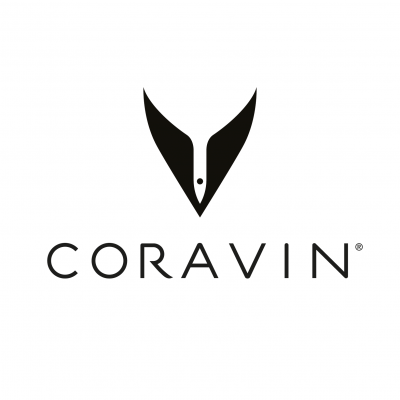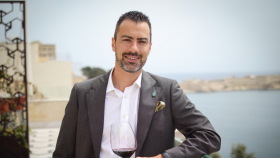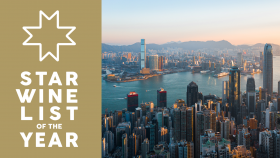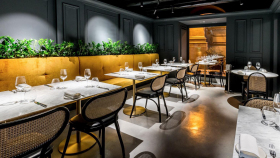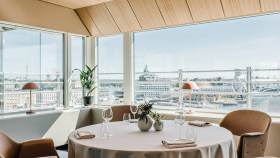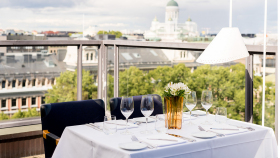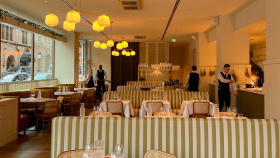Star Wine List with Coravin – the new future for By the Glass programs
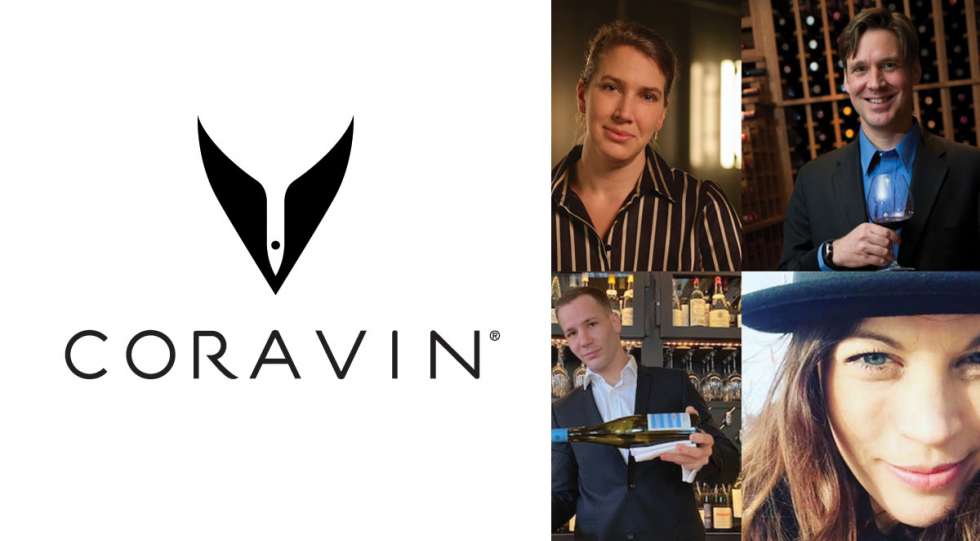
What are the learnings from last year, how can the business bounce back after the pandemic? And, maybe most important, how can top wine programs evolve and improve, especially when it comes to by the glass? To get some answers and new ideas, Star Wine List gathered three European top sommeliers and special guest Greg Lambrecht, founder of Coravin.
(Partner event and story with Coravin)
”We’re just trying to make it more exciting from our side. Trying to make sure we can make things faster, better, more fun. I’m an insane optimist and I believe that there will come good things out of this tragedy,” said Greg Lambrecht.
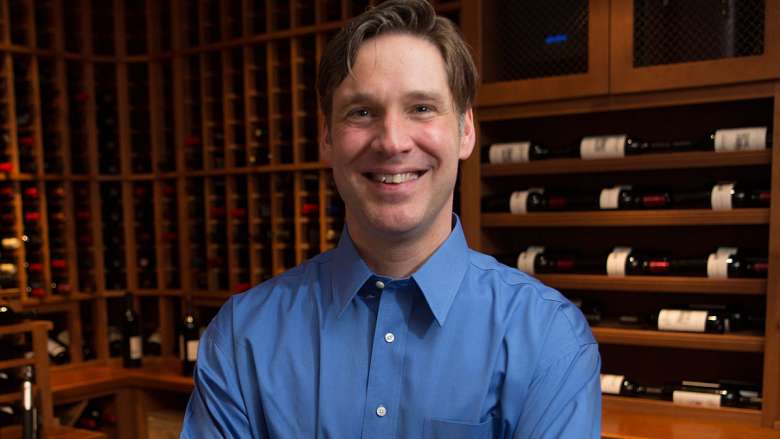
The online round table was held on 21 June and led by Star Wine List’s founder and publisher Krister Bengtsson. Joining the discussion were sommeliers from three of the restaurants and wine bars with the best by the glass programs in all of Europe:
Karin Dejeborn, Sommelier at Territoriet in Oslo, Norway
Paul Robineau, Sommelier at Les 110 de Taillevent, London, UK
Jacqueline Lorenz, Sommelier at Prism, Berlin, Germany
All three venues have of course been affected by the pandemic. And when everything started to open up, the first thing was to do a ”damage control”.
”We have a huge wine list with everything by the glass. We’ve been closed now for seven months and coming back from that it was a struggle that we had everything opened when we closed. The first thing we had to do was to go through all the 400 bottles in the wine locker to see who made it and who didn’t,” said Karin Dejeborn of Territoriet.
Jacqueline Lorenz said:
”We have around 300 different wines on the list, all by the glass. Similar to Territoriet, we had to taste all the wines to see which ones made it. And I’m proud to say we didn’t lose a single one, thanks to Greg.”
The discussion then continued with a summary of the experiences from last year.
Paul Robineau: ”It has been a very tough year for everyone around the world. At our restaurant, we’ve just tried to maintain a good relationship with our guests. Change our wine list, both by the glass and by the bottle, and I also lowered the prices, so I have been able to sell a fair amount of wine. We could also sell some half empty bottles for our guests to take home, so it wasn’t too bad.”
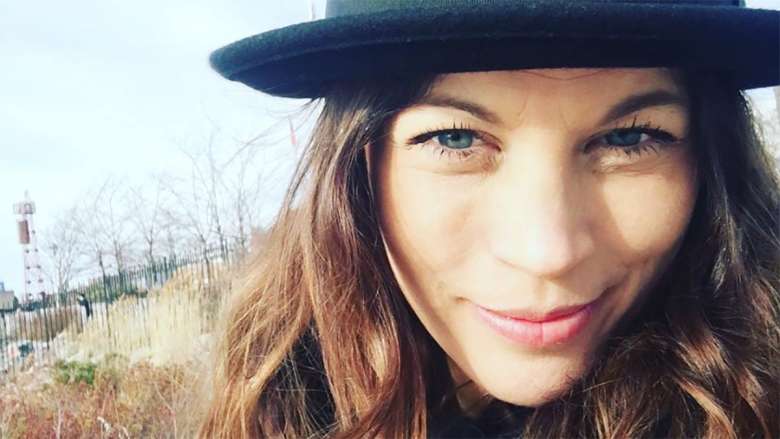
Karin Dejeborn: ”I wish I could have had the opportunity to do as Paul and sell bottles straight to our regular guests but here, rules are strict, you can’t sell anything to take home. I kept the bar open for café business during December, but then it was just impossible to keep it open.”
Jacqueline Lorenz: ”There is no part of society that hasn’t been touched. But I think I’m lucky, at least I have a family, I’m not on my own. The hardest part has been that I couldn’t do my job. Yes, we did take out and we sold wine, but being a delivery driver for seven months is not really my job.”
Greg Lambrecht: ”Here in the US, it has been interesting to see the laws change. I think it is 13 states that have made it legal to take out wine during the pandemic. That’s a good change.”
What are you seeing now, coming out of the pandemic?
Dejeborn: ”In Oslo where I live, things have been closed for seven months, and people have only been able to drink wine at home, wine from the monopoly. Since Oslo opened on 26 May it has been like a festival here, people have really been starving to go out for good food and good wine. People are happy and we are really busy right now, it’s been long days and long nights.”
Robineau: ”Vaccination is going fast in the UK, and since we could open the restaurant, we have been fully booked every night, with waiting list and all. Now when summer is coming, it’s starting to even out. There are still a lot of people, but the big wave is calming down.”
Lorenz: ”Berlin has always been a very going-out-driven city, and I have high hopes for the summer. Last summer was great because many people stayed in the city rather than travelling, and I hope people will stay this summer too.”
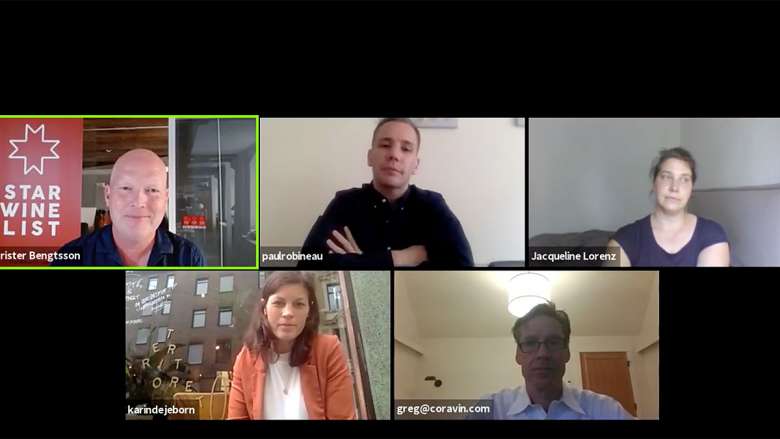
What about staffing, is it more difficult to find staff today?
Robineau: ”It is a big crisis, and the first time restaurants are running out of people. First of all, it has been the pandemic, but also Brexit. There are still around 15,000 vacancies in the UK. I had staff from like Italy and Spain and they went home and are not coming back, so I was also on my own when we re-opened. But I have been lucky to find two sommeliers part time that come and help me during service.”
Dejeborn: ”There are a lot of people within the industry that have decided to do something else, they just had to. When we re-opened in May it was only me left, and now I’m starting off with a whole new team. It has been a bit of a struggle to get things going again. Now I have one guy who is working full time apart from me, but I still need one more full time, I am working more than I maybe should.”
Lorenz: ”German conditions are very specific, since there is a pay gap between the eastern and the western parts of Germany. And honestly, I understand people who are leaving the business, all these late nights and the pay isn’t that good. But also, for me to raise the salaries, I also have to raise prices, which I don’t really want."
How can wine programs and service continue, evolve and improve in the future, especially when it comes to by the glass?
Lambrecht: ”We’re just trying to make it more exciting from our side. We have actually never had a more productive period, but I guess that’s what happens when you take engineers and lock them up at home for several months. We’re trying to make sure that we can make things faster, better, more fun. We’ve been lucky to hold on to everybody during the pandemic. The business shifted towards more home products and sales went online, but now it’s shifting back to the industry again.”
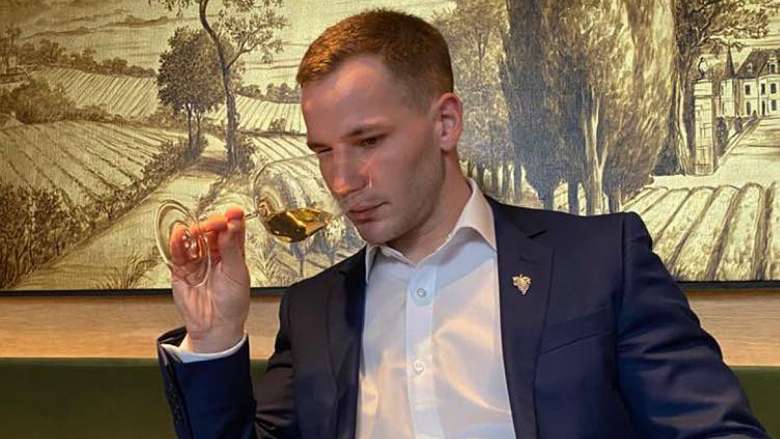
Robineau: ”I think we have to become better at keeping people involved and do as much training as we can. London is a bit old school, where people usually go to their job and then back home. It’s important to make people more involved and engaged.”
Greg, you also delivered som exciting news recently?
Lambrecht: ”Yes, it is a new system for sparkling wine! It has changed my way of drinking sparkling, now I try a different glass of sparkling every day, it is just a lovely way to enjoy this amazing wine style and I’m looking forward to exploring all the great wine cellars out there. We’re going to make them available late summer, at least the prototypes so that people can try them out.”
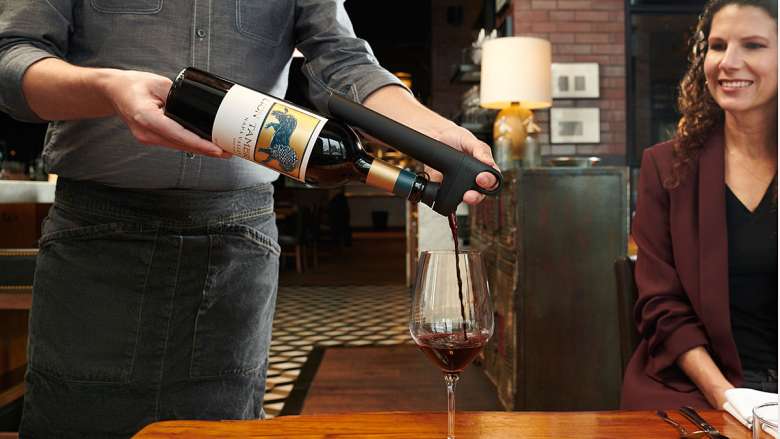
When it comes to your By the glass programs, what are your hopes and plans for the future?
Robineau: ”I’m not going to change my program drastically; I will keep the core of the by the glass list. But I will try to develop some verticals and, since around 60 percent of our wines are French, try to explore some new countries and wines that people are not that used to. But no major changes, it’s working well for us right now.”
Dejeborn: ”What we learned during lockdown was that we realized what is important and what we can leave out. And for Territoriet, it is important that we do pretty much everything by the glass. Sure, we lost some wine and money last year but we’re going to keep doing what we do, maybe even more than usual. We have some wines in our cellar that we will try to sell off before we buy new ones, so there will be more cellar wines on the list for a while.”
Lorenz: ”We’re going to try out the new Coravin Sparkling and the new sparkling list is being printed in August. And the magic of this time right now is that you can sharpen the lens on what you do best. We’re going to expand our Israeli list, and I wish I could get more stuff from Lebanon, but the situation there is so hard right now.”
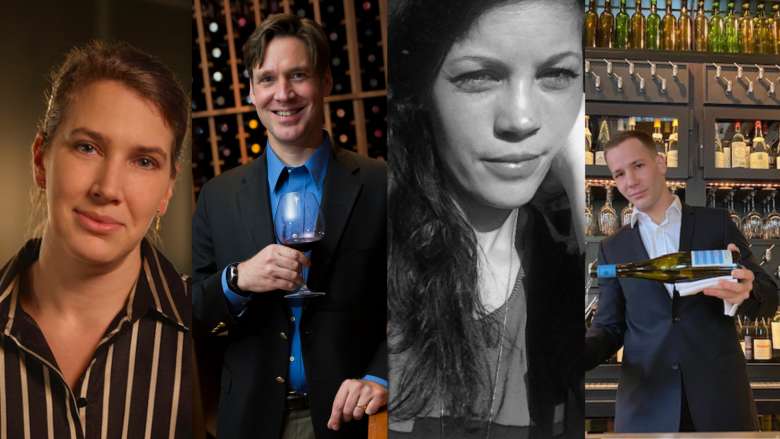
What are you most looking forward to when the pandemic ends?
Lorenz: ”Travelling, getting to see all these vineyards and wines in like Israel and Lebanon. But also not having to worry about things like distance between tables. I just want to bring joy to people. I know that I need my guests, but they need us too. I’m looking forward to that magical experience.”
Robineau: ”I’m looking forward to get back into the vineyards, from a sommelier perspective. Getting back to traveling, meeting people, having contact with wine makers and all.”
Dejeborn: ”I also really look forward to travelling. Berlin is actually on top of my list and that is one of the first places I will go. I also want to go back to Burgundy, and of course Sweden where my family is.”
Lambrecht: ”This beverage that we work with is the most social beverage in the world, and the last year we haven’t been able to be social. I miss people, I want to meet people all around the world. I’m going to use the Coravin Sparkling as an excuse to go back out on the road again and meet people in the business and see all these cities that I miss!”
Do you want to see the entire round table discussion? Here is the link to the video on Facebook!
And for sommeliers and the trade - Coravin has launched news to help the trade bounce back, check them out here.
Do like the Pros - search 2500+ wine lists




